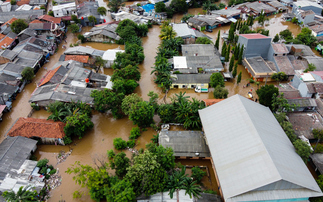A strong climate treaty would benefit the global renewable sector, argues Richard Black, but it is too early to say how much the industry may prosper
Yesterday I took a look at the potential of a UN climate agreement this year to stimulate growth of the energy efficiency sector worldwide. With many governments setting targets for renewable energy deployment to 2030 in the pledges they've made to the UN climate convention, it's worth asking the same question for renewables.
The International Energy Agency (IEA) has just weighed in with its own analysis, designed to coincide with the UNFCCC meeting here in Bonn this week.
It concludes that about $4tr would have to be invested in renewables between now and 2030 in order to build the kind of capacity implied by the cumulative government pledges. Of the 150-odd pledges submitted so far, about 40 per cent have firm renewables targets, while inferences are possible for some of the others.
Wind is forecast to garner about one-third of that pot, followed by solar at 30 per cent and hydro at one-quarter.
The IEA foresees an interesting difference in the likely epicentres of investment for renewables and energy efficiency. While the bulk of the efficiency market will lie in OECD countries, it predicts, non-OECD countries will command about two-thirds of renewables investment.
For companies interested in gaining a share of these additional markets, there are a number of questions that indicate a tangled web below the smooth surfaces of these headline numbers.
India is a good case in point - and as it's the world's third largest greenhouse gas emitter and a major growth centre for renewables already, it represents one heck of a market.
One of the headline commitments in its climate change pledge is for low-carbon technologies to make up 40 per cent of its electricity generation capacity by 2030. But making projections for individual sectors is far from easy, as Radhika Khosla and Navroz Dubash of the Centre for Policy Research explore in an excellent analysis.
First of all, 'clean energy capacity' can include nuclear, as well as several types of renewable technology. It could also include CCS, of course, but that looks some way off for India - even according to the Global CCS Institute.
The government believes nuclear capacity could extend 10-fold from its current 6GW within 15 years. Unsurprisingly, Khosla and Dubash think this is unlikely, even give the strategic importance attached to nuclear by the Indian government.
But the outcome here is highly important for the renewables sector. If nuclear does swell to 63GW, renewables capacity needed to meet the 40 per cent target could be as low as 114GW. This is barely above the solar-only target announced for 2022, of 100GW, which may in any case rise.
But if nuclear struggles to a much lower figure, wind, solar and (who knows) tidal power would gain a fillip. The overall renewables capacity indicated could be as high as 276GW - which is about as much as India's total capacity now, which is either a daunting challenge or an inspiring opportunity, depending on how you look at it.
The eventual renewables/nuclear split would of course have important implications for climate change, given that the capacity factors for nuclear and solar are so different. Perhaps expressing the goal in generation rather than capacity terms would have been helpful.
If this wasn't complex enough, the Indian targets are also contingent on receiving financial and technical assistance from Western nations. This is something that Western countries have in principle pledged to do, as it's enshrined in the UN climate convention; but there's currently a lack of clarity about how it's going to happen.
And India doesn't make clear how much assistance it thinks is necessary to bring its clean energy target into play; neither has it said what targets it might pursue if it doesn't receive any or enough assistance.
We could re-run the exercise for many other developing counties which have made their emission cutting targets, their renewable energy targets or both contingent on financial and technical assistance.
Having started with the intention of providing as clear a picture as possible, I'm afraid that the opposite picture is materialising. But that doesn't mean that securing a climate deal at December's UN summit in Paris is immaterial for the renewables industry.
Quite the contrary. The complexities this quick analysis throws up are mainly rooted in shifting baselines and intrinsic imponderables - and whatever the realities here, there's no doubt a strong climate deal would do a lot to stimulate investment in deployment and innovation, across the range of technologies.
Richard Black is director of the Energy & Climate Intelligence Unit and a former BBC Environment Correspondent
This article is part of BusinessGreen's Road to Paris hub, hosted in association with PwC







